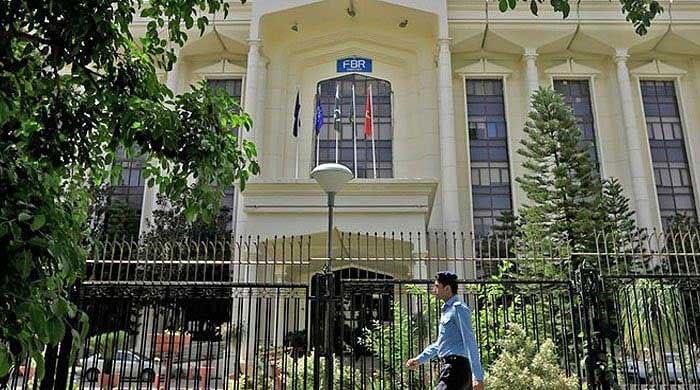
FBR to Make Civil Servants' Assets Public: A Step Towards Transparency
In a significant move aimed at enhancing transparency and accountability within the civil service sector, the Federal Board of Revenue (FBR) of Pakistan has proposed a draft amendment to make the assets of civil servants public. This initiative comes in response to a pressing demand from the International Monetary Fund (IMF) and reflects a growing global trend towards transparency in governance.
The Context of Asset Disclosure
The call for transparency in public service has become increasingly relevant in recent years. Governments around the world are recognizing the importance of maintaining public trust, especially in times of economic uncertainty. By disclosing the assets of civil servants, the FBR aims to combat corruption and promote ethical conduct among public officials.
In Pakistan, the civil service has long been a focal point of scrutiny, with allegations of corruption and misuse of power frequently surfacing. The IMF’s insistence on asset disclosure is part of its broader strategy to ensure that financial assistance is allocated efficiently and transparently in countries facing economic challenges.
Key Features of the Proposed Amendment
The proposed amendment by the FBR outlines several key features:
1. Public Disclosure: Civil servants will be required to publicly declare their assets, including property, bank accounts, and other financial holdings. This will help in creating a transparent record that can be accessed by the public.
2. Regular Updates: The amendments stipulate that civil servants must regularly update their asset declarations to reflect any changes in their financial status. This ensures that the information remains current and accurate.
3. Penalties for Non-Compliance: To enforce compliance, the draft includes provisions for penalties against civil servants who fail to declare their assets or provide false information.
4. Accessibility of Information: The asset declarations will be made accessible through an online portal, allowing citizens to view the financial standing of their public officials. This promotes accountability and public engagement.
The Importance of Transparency
Transparency in governance is crucial for several reasons:
- Building Trust: When citizens have insight into the financial dealings of their public servants, it fosters a sense of trust in government institutions. This trust is essential for the effective functioning of democracy.
- Deterrent to Corruption: Publicly disclosing assets acts as a deterrent against corrupt practices. Civil servants are less likely to engage in unethical behavior if they know their financial status is under scrutiny.
- Encouraging Ethical Conduct: Transparency encourages civil servants to adhere to ethical standards, knowing that their actions are subject to public observation.
- Improving Governance: With a transparent system in place, it becomes easier to identify and address issues within the civil service, leading to improved governance and public service delivery.
Challenges Ahead
While the proposed amendments are a step in the right direction, several challenges may arise during implementation:
- Resistance from Civil Servants: Some may view the asset disclosure requirement as an invasion of privacy, leading to potential pushback from within the civil service. It will be essential to address these concerns through effective communication and education.
- Ensuring Accurate Reporting: Establishing a reliable system to verify the accuracy of reported assets will be critical. The FBR will need to invest in tools and resources to audit asset declarations effectively.
- Public Awareness: For the initiative to be successful, there must be a concerted effort to educate the public about the importance of asset disclosure and how to access the information.
Conclusion
The FBR's initiative to make civil servants' assets public marks a significant step towards fostering transparency and accountability in Pakistan's governance. By aligning with international standards and responding to the demands of the IMF, this move not only aims to combat corruption but also strives to restore public trust in government institutions. While challenges remain, the potential benefits of this initiative could lead to a more ethical and transparent civil service, ultimately contributing to the nation's development and prosperity.
---
FAQs
Q1: Why is the FBR proposing to make civil servants' assets public?
A1: The FBR is proposing this measure to enhance transparency and accountability within the civil service, responding to demands from the IMF and addressing concerns about corruption.
Q2: What are the key features of the proposed amendment?
A2: The key features include public disclosure of assets, regular updates to asset declarations, penalties for non-compliance, and accessibility of information through an online portal.
Q3: How will this initiative benefit the public?
A3: By allowing public access to civil servants' assets, the initiative aims to build trust, deter corruption, encourage ethical conduct, and improve governance.
Q4: What challenges may arise from implementing asset disclosure?
A4: Potential challenges include resistance from civil servants, ensuring accurate reporting, and the need for public awareness and education regarding the initiative.
Q5: When will the asset disclosure requirement take effect?
A5: The timeline for implementation will depend on the approval of the draft amendment and the establishment of the necessary systems for reporting and verification. Further announcements from the FBR will provide clarity on this matter.
Tags
Business
